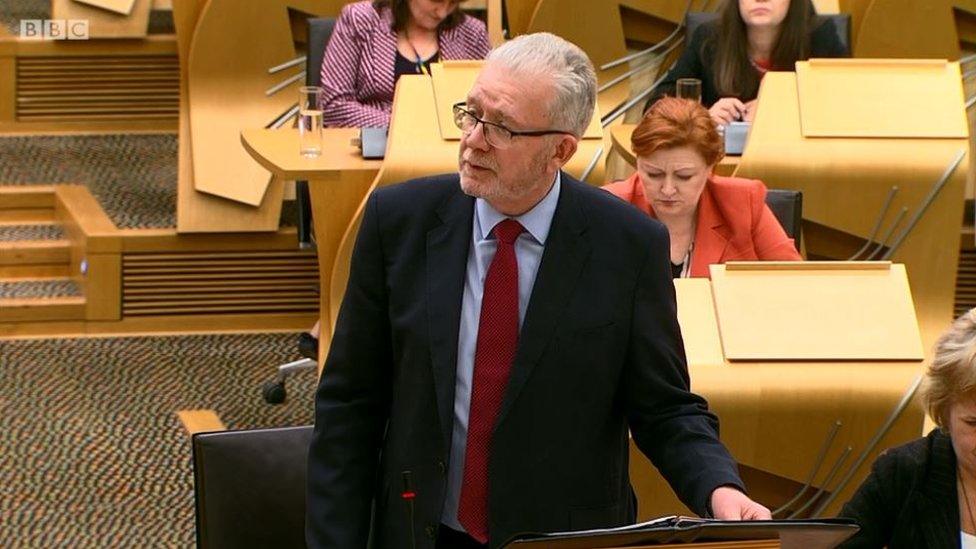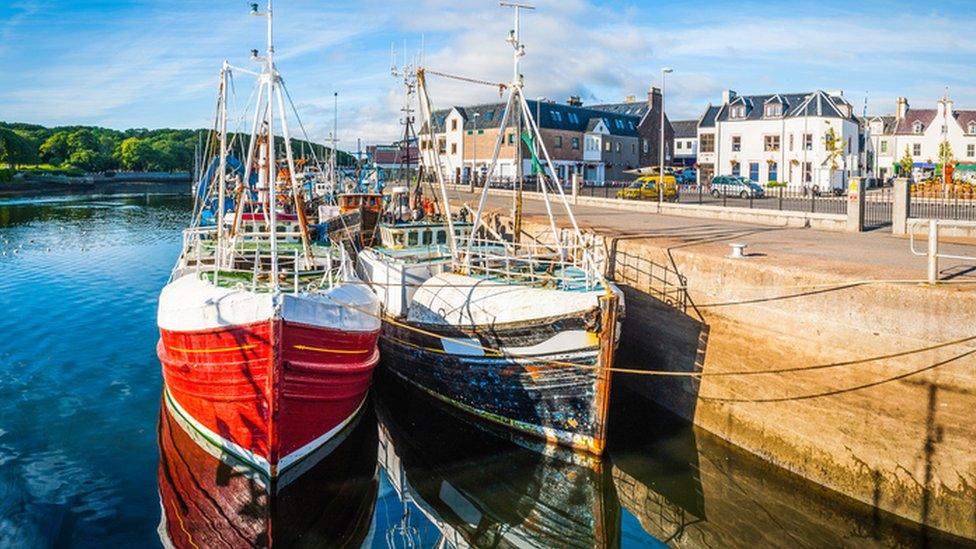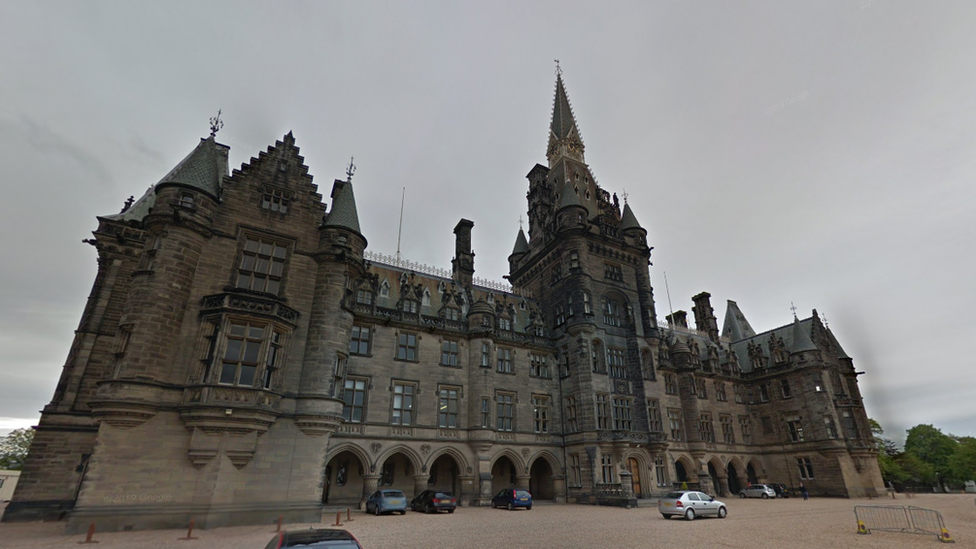Holyrood's week: Workplace parking tax to be debated
- Published

The Transport (Scotland) Bill, which includes the controversial workplace parking levy, returns for the final debate this week.
Nearly 200 amendments will be considered during a five-hour session on Wednesday afternoon.
The final debate and vote will be on Thursday.
Labour MSP Neil Bibby will bid to remove the parking tax from the bill entirely.
His party has insisted this will impact the pockets of employees most of all, particularly those who are unable to get public transport to work.
The government and Scottish Greens agreed to give councils the power to bring in such a levy as part of the last budget deal.
It will be for councils to decide how such a levy will work at local level.
But Labour, the Conservatives and Lib Dems have all resisted the move so far.
Other amendments also seek to add exemptions for a levy, including police and fire services.
The Transport Bill, external will also legislate on low emission zones and bus services.
What else is happening at Holyrood this week?
Tuesday - no-deal preparations

Brexit Secretary Mike Russell will update MSPs on the Scottish government's preparations for a possible no-deal Brexit.
The UK is due to leave the European Union at the end of this month and the Scottish parliament enters recess for two weeks after this one.
Expect more warnings about limited mitigation of the impacts and calls for Boris Johnson to adhere to the Benn Act and request an extension of Article 50.
Another statement follows on the proposed national plan for the islands.
It will set out a strategy for improving outcomes for island communities and is expected to have a particular focus on transport and housing.
Afterwards, MSPs will debate how best to support innovation and then SNP MSP Gordon MacDonald will mark 50 Years of the Institute of Occupational Medicine.
In the morning, the energy committee will take evidence from a range of experts on the first annual energy statement, external.
The statement set out progress towards targets in the energy strategy, which includes having 50% of Scotland's energy needs met by renewables by 2030.
The Scottish government is currently reviewing a range of policies to ensure Scotland reaches net-zero emissions by 2045 and energy will be a key player in this.
Wednesday - Brexit and fisheries

The five-hour session on the Transport Bill will be sandwiched by Brexit and culture questions, and SNP MSP Sandra White leading a debate on the charter of rights for dementia patients.
In the morning, the rural economy committee will be looking at the impact of Brexit on fisheries.
While the sector has often been used to highlight benefits from Brexit - namely leaving the Common Fisheries Policy (CFP) - it will also be impacted by changes to trading arrangements.
The inshore fisheries sector, which is less effected by the CFP, is particularly concerned about this.
The Scottish Creel Fishermen's Federation wrote to the committee warning tariffs could have "devastating results on the food sector across Scotland".
Thursday - business rates
First minister's questions at noon will be followed by SNP MSP Bill Kidd highlighting World Day Against the Death Penalty.
The final debate on the Transport Bill takes place after education questions and will last an hour.

Fettes College in Edinburgh may be required to pay business rates under the reforms
Then MSPs debate the Non-Domestic Rates (Scotland) Bill, external for the first time.
This introduces a range a reforms to business rates, including ending the relief for independent schools.
The local government committee broadly backed the reforms in the bill, though the Conservative members dissented from the conclusion independent schools should lose their charitable status.
The committee also called for the closure of a loophole which sees people who own holiday homes avoiding local property taxes and ensuring there is no "cliff edge" to the small business bonus scheme.